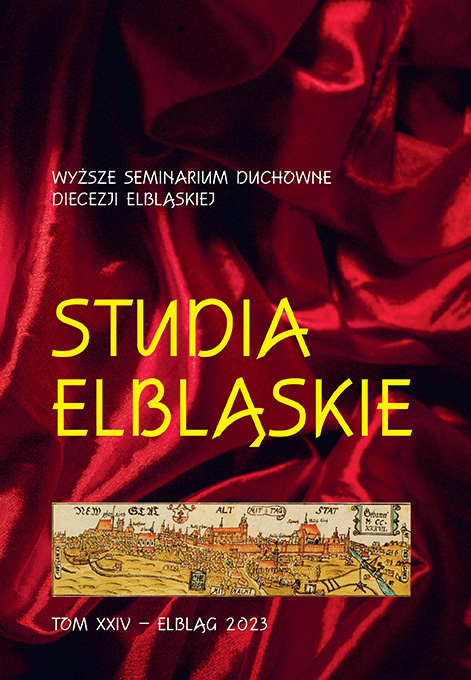Integracja osób żyjących w nieuregulowanych sytuacjach małżeńskich w Kościele jako wyzwanie duszpasterskie
Integration of people living in irregular marital – situations in the Church as a pastoral challenge
Author(s): Mariusz OstaszewskiSubject(s): Christian Theology and Religion, Theology and Religion, Pastoral Theology
Published by: Wyższe Seminarium Duchowne Diecezji Elbląskiej w Elblągu
Keywords: non-sacramental marriages; Church; marriage; pastoral care; Amoris laetitia
Summary/Abstract: Pastoral care for people living in non-sacramental relationships certainly has no readymade prescriptions. Rather, it is a path that reveals its meaning as one walks along it. The work of pastoral care teaches one to seek ways to God in spite of the obstacle that exists. Christian love and mercy are the foundation of pastoral care in irregular marital situations. Accompaniment, discernment and gradual integration are the source of the pastoral care ministry. Accompaniment has a slightly different specificity with regard to those living in informal unions, Catholics bound only by a civil marriage, those living in separation and divorced persons who have not entered into a new union or are living in new civil unions or without any legal regulation. Within the latter group, the state and situation of the relationship should be reviewed, the possibility of reconciliation and return to the spouse should be explored. If a return is not possible, the possibility of going to an ecclesiastical court to examine the validity of the canonical marriage must be reviewed. If the above-mentioned steps are not feasible, and the persons remains in the new relationship for valid reasons, then the pastor should carry out a discernment process to determine whether the person being guided can enter into a process of discernment with the pastor. The person qualified for the discernment process, together with a confessor or spiritual director, should concentrate on discovering God’s action in his or her life. Such discernment will show her the way forward in her integration into the community of the Church. It is valuable to show the already existing integration to those living an irregular relationship. Through prayer, acts of love and the sacrifice of life, these persons connect with the Church and discover God’s pedagogy in their lives. Those who meet certain conditions in the discernment process can receive sacramental absolution and be discreetly integrated into sacramental life. Pastoral workers should remember that this moment does not close the spiritual development of those living in irregular marital situations. This moment does not end the journey of accompaniment and discernment of further steps in doing God’s will and realising more fully the Gospel intention in one’s marriage and family life. The pastoral care of non-sacramental marriages is a wide-open window of intimate faith, a strengthening of trust in God and a direction for overcoming all the difficulties of life. Acceptance by the community and integration restore a sense of belonging to the Church and help regain hope that all is not yet lost.
Journal: Studia Elbląskie
- Issue Year: 2023
- Issue No: 24
- Page Range: 295-309
- Page Count: 15
- Language: Polish

